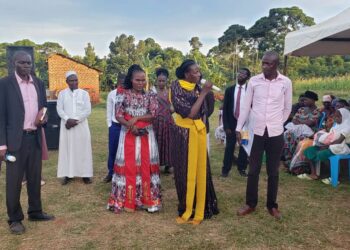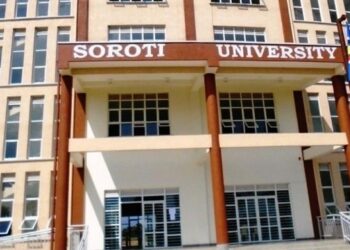By Najib. N. Ssekikubo
The continued closure of education institutions poses great challenges to children with disabilities (CWDs). A couple of weeks into the lockdown, a number of special homes that host CWDs, called on government and the general public for support due to inability to receive donor money from international organizations that fund their programs. Although some homes/schools managed to send the children back home, others remained operational to date.
The 1994 World conference on special needs education adopted the “Salamanca statement and framework for action on special needs education”, to guide policy shifts necessary for inclusive education, furthering the principle of “Education For All”. The framework thus recommended inclusion of CWDs in the mainstream schools with “Individualised Education Plans (IEPs) where necessary (as opposed to complete institutionalisation in special schools).
The recommendation required governments to embark on plans that would ensure that children are moved from special to general schools with a few exceptions. The exceptions mainly cater for students with severe cases and those with multiple difficulties which deter them from participation in the general environment. The benefits of inclusion are innumerable and they include; providing equal opportunity and full participation (as social beings), as well as solidarity between CWDs and their peers, among others.
Uganda has made numerous strides in policy formulation to stir inclusive special needs education. The rights of children with disabilities; particularly pertaining to education, care and well-being are well documented. However, it is unfortunate that most of the plans have remained on paper. The major emphasis has been put on infrastructural adjustments to ease the accessibility and mobility of CWDs at schools. Not much has been done to ensure that the schools are academically and socially inclusive through curriculum adaptations, Assistive Technology and special needs personnel development.
A big majority of CWDs (of the few that attend school) remain institutionalised (based on nature of disability) across the country, with minimal chances of interacting with the rest of the society (apart from caretakers and irregular visitors). The continued institutionalisation is due to the fact that only the special schools have the capacity to handle CWDs. Only 5% of CWDs are currently receiving education in inclusive environments with numerous challenges.
The education sector response plan has not effectively (if in anyway) addressed the plight of children with special educational needs. The programs (print self-study materials and the “contentious” radio & TV lessons) that were put in place mainly cater for the general learners. The ECD guidelines given to parents by the ministry to ensure continuity of learning didn’t address learners with special needs. The most challenging issue about CWDs is the uniqueness of each learner and thus the learning styles. Parents have been stranded with children with limited or zero learning taking place, risking loss of the acquired abilities.
The advantage of inclusive education is the engagement of numerous stakeholders. The Education Act for instance, provides that CWDs should attend the nearby general schools in their communities, attended by their siblings. If this provision is enforced, it becomes easy for the parents to monitor the child’s learning through parent-teacher seminars. Schools may also be able to orient parents on how best their children can learn. In addition, the siblings too may get acquainted with the CWDs learning process and help them to do better. The beauty with this approach is that with time, due to exposure, CWDs eventually adapt to the teaching styles in the general environment.
The equipment – Assistive Technology used by some categories of CWDs is costly and not affordable to majority parents. Unfortunately, to some categories, the absence of equipment means absence of learning. If children attend schools in their communities, it would be easy to have special arrangements at the school. It would also be easy for the teachers to always check on them at home, assess their progress and guide parents on the way forward. All this is possible only if the schools in communities have the capacity to handle special needs children, which is currently not the case in Uganda.
Socially, inclusion in the mainstream schools helps CWDs to acquire social skills and also yield acceptance from other children. The fact that they always live together makes them feel part of the society and fully participate as members of the community. For example, children that living with a peer that has hearing difficulty will learn suitable ways to communicate with him/her. For institutionalised CWDs, reuniting with family usually comes with difficulty. There’s a possibility of resentment from their siblings, difficulty adapting to the family dynamics and a feeling of neglect. All these affect their sense of self, leading to low self-esteem.
The lockdown has greatly justified the need for inclusive education. It poses numerous dangers to CWDs both at home with parents and those that remained at special homes. However much the latter could be receiving planned lessons, the emotional drain experienced in this period would only be averted by social support from immediate family members. For those at home, the continuity of learning has been very hard.
Inclusion in the mainstream schools is not a privilege but a right and a fulfillment of our international commitments to CWDs. The financing of inclusive special needs education stands at 0.1%, short of the required 10% of the education sector budget. Government should strive to achieve inclusiveness across the education sector beyond infrastructural adjustments. This requires a strong budgetary consideration. Additionally, it would be of great importance if all the special schools are attached to the general schools. That way, learners that can participate in the general environment easily switch from the general to the special section.
Najib is an educationist with a bias on special needs education
Do you have a story in your community or an opinion to share with us: Email us at editorial@watchdoguganda.com












